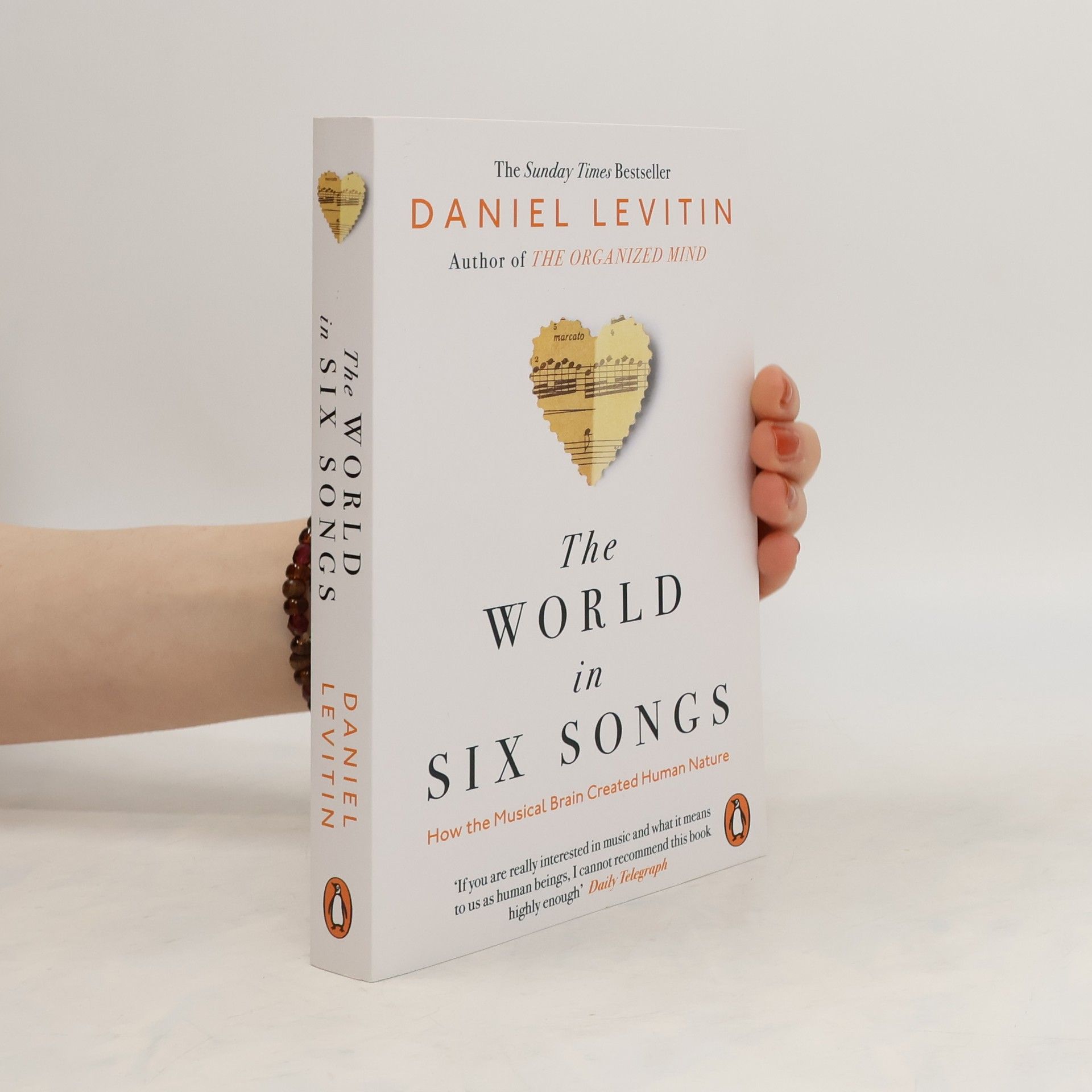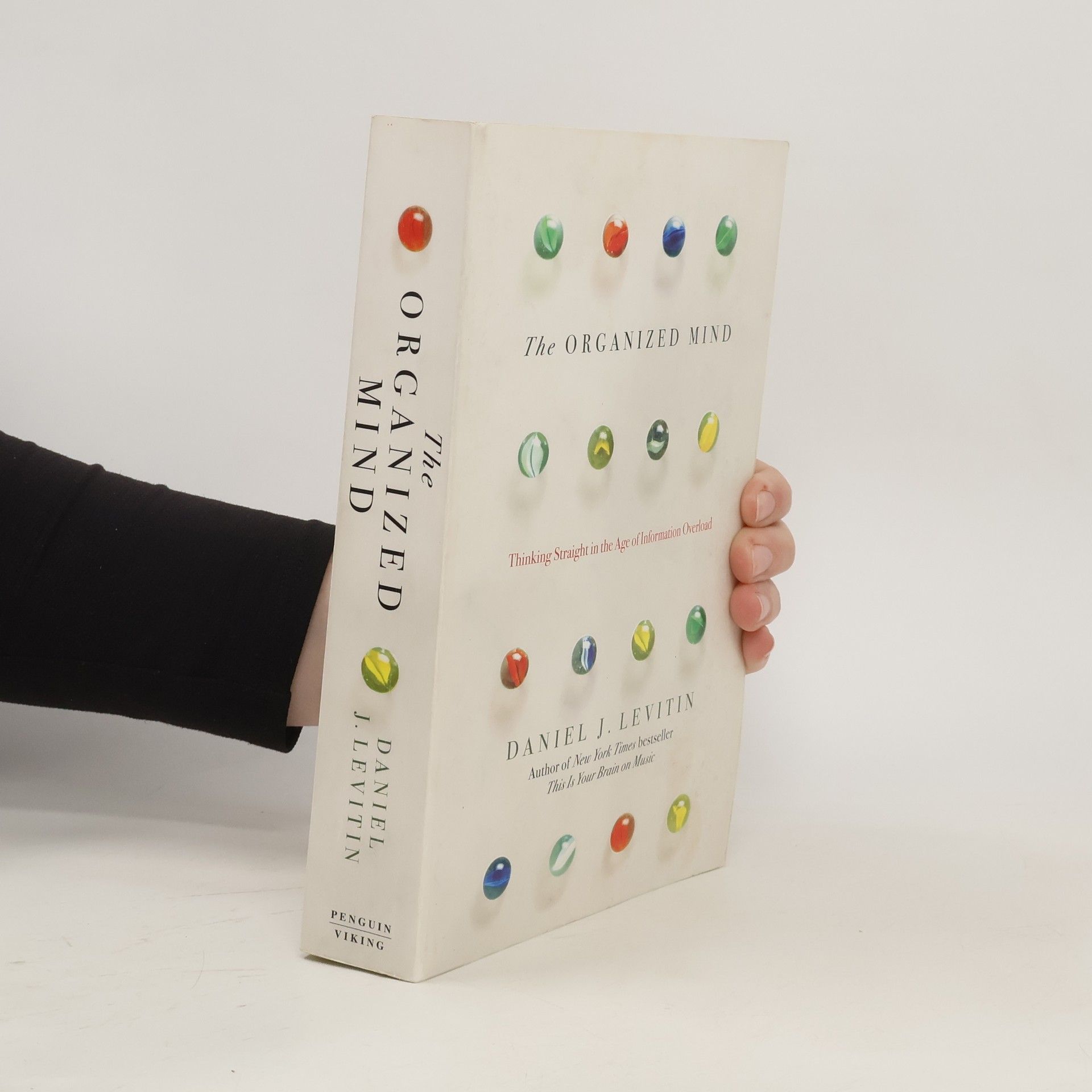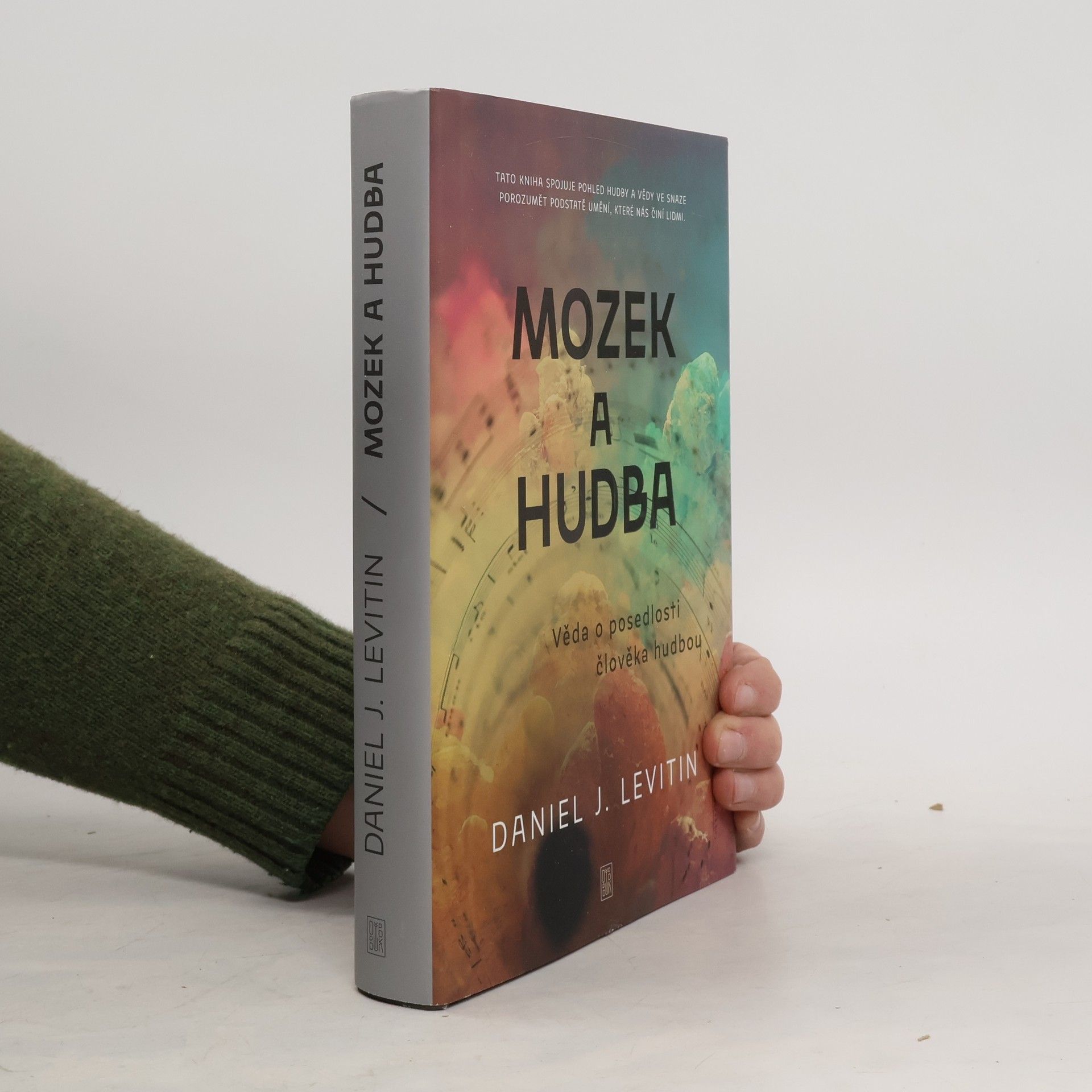Mozek a hudba. věda o posedlosti člověka hudbou
- 296 stránek
- 11 hodin čtení
Daniel J. Levitin is a neurovědec a hudební vědec, jehož práce zkoumá složitou souvislost mezi hudbou, mozkem a lidským vnímáním. Díky svému rozsáhlému zázemí jako hudebník a inženýr přináší do svého výzkumu jedinečnou perspektivu, která propojuje uměleckou praxi s vědeckým zkoumáním. Levitin se zabývá tím, jak mozek zpracovává a reaguje na hudbu, a odhaluje hluboké kognitivní a emocionální procesy, které hudba spouští. Jeho psaní o psychologii hudby a poznávání jsou přístupná a poutavá a nabízejí čtenářům hlubší pochopení role, kterou hudba hraje v našich životech.






Exploring the transformative effects of music, this book delves into its profound healing capabilities, supported by recent scientific research. It reveals how music can reduce stress, enhance cognitive functions, and even combat neurodegenerative diseases. The author, a neuroscientist and musician, presents innovative concepts like 'rhythmic auditory stimulation' for treating conditions such as PTSD and multiple sclerosis. Through insights on how music can aid in emotional healing and memory repair, the book celebrates humanity's deep connection to music and its potential as a therapeutic tool.
In this ground-breaking book, Dr Daniel Levitin uses cutting-edge research from neuroscience and psychology to demonstrate the importance of the stage that follows the middle-age. Packed with engaging interviews with successful, creative individuals far beyond the conventional age of 'retirement', this book also reflects on challenges many…
From the New York Times bestselling author of THE ORGANIZED MIND and THIS IS YOUR BRAIN ON MUSIC comes a vital guide to critical thinking in an age overwhelmed by information. Each day, we face a deluge of misleading data, half-truths, and outright lies, particularly during election season. Daniel J. Levitin equips readers with the tools to identify deceptive statistics, graphs, and reports, revealing how misinformation can easily infiltrate our lives. Distinguishing between misinformation, pseudo-facts, and reliable information is increasingly challenging. Levitin categorizes his insights into statistical information and faulty arguments, emphasizing that science is foundational to critical thinking. Infoliteracy involves recognizing the varying quality and bias of sources that distort our information feeds across all media, including social platforms. While we often expect accuracy from newspapers, bloggers, and even Wikipedia, they frequently fall short. To navigate this landscape successfully, we must engage critically with the information we encounter, assessing its plausibility and reasoning rather than accepting it blindly. Levitin's engaging and accessible guide empowers readers to avoid the pitfalls of gullibility and cynicism, helping them uncover truths and recognize deceitful tactics.
Dividing the sum total of human musical achievement, from Beethoven to The Beatles, Busta Rhymes to Bach, into just six fundamental forms, Levitin illuminates, through songs of friendship, joy, comfort, knowledge, religion and love, how music has been instrumental in the evolution of language, thought and culture. And how, far from being a bit of a song and dance, music is at the core of what it means to be human. A one-time record producer, now a leading neuroscientist, Levitin has composed a catchy and startlingly ambitious narrative that weaves together Darwin and Dionne Warwick, memoir and biology, anthropology and a jukebox of anecdote to create nothing less than the ' soundtrack of civilisation' .
A ground-breaking book by the world-leading expert in sensory science: Freakonomics for food Why do we consume 35% more food when eating with one more person, and 75% more when with three? Why are 27% of drinks bought on aeroplanes tomato juice? How are chefs and companies planning to transform our dining experiences, and what can we learn from their cutting-edge insights to make memorable meals at home? These are just some of the ingredients of Gastrophysics , in which the pioneering Oxford professor Charles Spence shows how our senses link up in the most extraordinary ways, and reveals the importance of all the "off-the-plate" elements of a meal: the weight of cutlery, the colour of the plate (his lab showed that red is associated with sweetness - we perceive salty popcorn as tasting sweet when served in a red bowl), the background music and much more. Whether dining alone or at a dinner party, on a plane or in front of the TV, he reveals how to understand what we're tasting and influence what others experience. Meal-times will genuinely never be the same again.
Recent studies show that our decision-making skills improve as we age, and that our happiness levels peak at age eighty-two. Levitin examines the neuroscientific evidence to challenge many of the beliefs that surround aging. He provides realistic plans for how you can make the most of your seventies, eighties, and nineties today-- no matter how old you are now. -- adapted from jacket
A guide to critical thinking in the 'post-truth' era, from the author of Sunday Times best-seller The Organized Mind We live in a world of information overload. Facts and figures on absolutely everything are at our fingertips, but are too often biased, distorted, or outright lies. From unemployment figures to voting polls, IQ tests to divorce rates, we're bombarded by seemingly plausible statistics on how people live and what they think. Daniel Levitin teaches us how to effectively ask ourselves: can we really know that? And how do they know that? In this eye-opening, accessible guide filled with fascinating examples and practical takeaways, acclaimed neuroscientist Daniel Levitin shows us how learning to understand statistics will enable you to make better, smarter judgements on the world around you.
Analyzes six evolutionary musical forms while identifying neural impulses that reflect the brain's development in accordance with music, illuminating the sophisticated biological process that accompanies the musical experience.